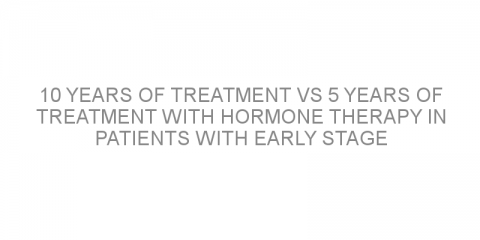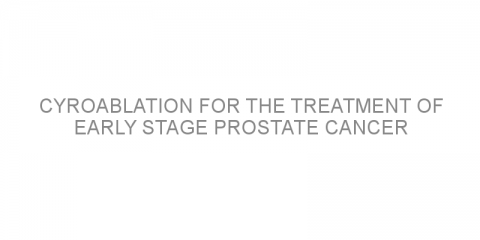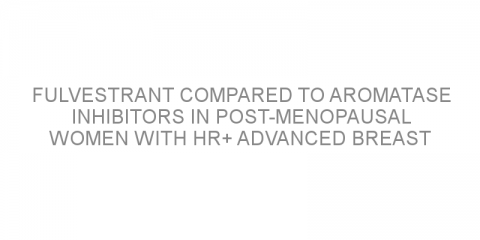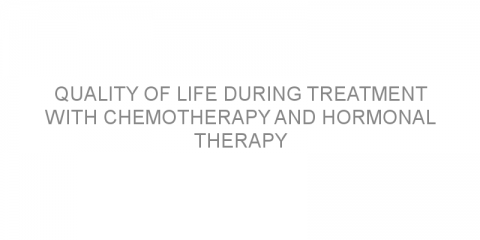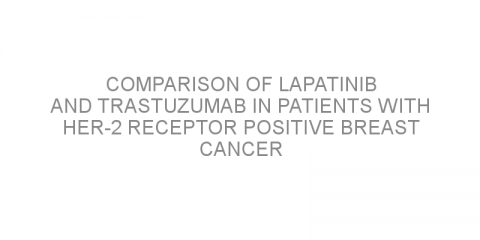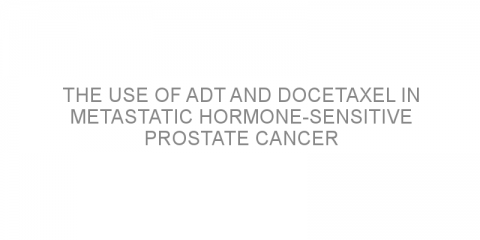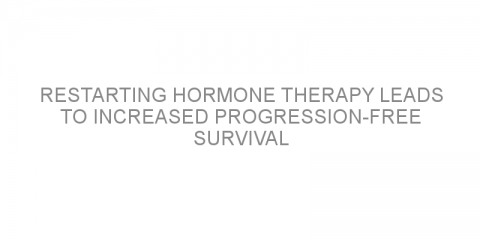In a nutshell This study aimed to compare two hormone therapies, gonadotropin-releasing hormone (GnRH) agonists and anti-androgen therapy (AA) in men with advanced, non-metastatic prostate cancer. This study found that the two therapies have similar outcomes, but by starting with AA treatment may reduce side effects associated with GnRH...
Read MoreOngoing treatment(s)-Hormonal therapy Posts on Medivizor
10 years of treatment vs 5 years of treatment with hormone therapy in patients with early stage breast cancer.
In a nutshell This study wanted to find out if continuing hormone therapy for 10 years was more effective than doing it for 5 years in patients with early stage breast cancer. The study found that the patients who continued treatment for 10 years survived for longer without the disease coming back compared to those who were only treated for 5...
Read MoreCyroablation for the treatment of early stage prostate cancer
In a nutshell This study evaluated the long-term safety and effectiveness of cryoablation (a process that uses extreme cold to destroy tissue) for patients with early prostate cancer. This study found that cryoablation is safe and effective for early-stage prostate cancer. Some background Cryoablation is a treatment option for early-stage prostate...
Read MoreShould men with castration-resistant metastatic prostate cancer receive further hormone therapy?
In a nutshell This study aimed to discover the optimal timing of hormone therapies in combination with androgen-deprivation therapy (ADT) for patients with metastatic hormone-sensitive prostate cancer. This study found that treatment with a second hormone therapy after prostate cancer becomes immune to hormone treatment is associated...
Read MoreFulvestrant compared to aromatase inhibitors in post-menopausal women with HR+ advanced breast cancer
In a nutshell This study aimed to look at the safety and effectiveness of fulvestrant (Faslodex) compared to aromatase inhibitors in post-menopausal women with hormone receptor-positive (HR+) breast cancer. The authors found that fulvestrant was a safe and effective treatment in these patients when compared to aromatase inhibitors. Some...
Read MoreQuality of life during treatment with chemotherapy and hormonal therapy
In a nutshell This study aimed to compare quality of life between patients with metastatic prostate cancer who were treated with androgen deprivation therapy (ADT) and docetaxel and those who were treated with ADT alone. This study found that ADT and docetaxel was associated with statistically worse QOL at 3 months. However, QOL was better...
Read MoreComparison of lapatinib and trastuzumab in patients with HER-2 receptor positive breast cancer
In a nutshell This study aimed to compare lapatinib (Tykerb) and trastuzumab (Herceptin) in patients with HER-2 receptor positive breast cancer. This study found that in patients with hormone receptor-positive tumors, use of lapatinib for 6 months, followed by trastuzumab for 12 months significantly improved survival...
Read MoreExercise, body composition and fatigue with androgen deprivation therapy
In a nutshell This study aimed to determine whether body composition (lean and fat mass) and exercise had an effect on fatigue levels in men treated with androgen deprivation therapy. The study concluded that fat mass was associated with fatigue, and an increase in lean mass due to exercise successfully reduced fatigue. Some background Androgen...
Read MoreThe use of ADT and docetaxel in metastatic hormone-sensitive prostate cancer
In a nutshell This study aimed to discover if docetaxel (Taxotere) added to androgen-deprivation therapy (ADT) increases overall survival for patients with metastatic hormone-sensitive prostate cancer. This study found that overall survival was higher for patients who received ADT and docetaxel compared to those who took ADT. Some...
Read MoreSecond-line treatments for metastatic castration-resistant prostate cancer
In a nutshell This study aimed to investigate treatments given after chemotherapy and hormonal therapy for metastatic prostate cancer, resistant to castration. This study found some benefit in abiraterone (Zytiga) or enzalutamide (Xtandi) but not in using docetaxel (Taxotere) again. Some background Androgen deprivation therapy...
Read MoreAndrogen deprivation therapy increases the risk of depression in patients with prostate cancer
In a nutshell This study aimed to determine whether androgen deprivation therapy (ADT) is associated with an increased risk of depression for patients with prostate cancer. It found that there was an increased risk of depression. Some background A main treatment option for prostate cancer is androgen deprivation therapy (ADT). This blocks...
Read MoreRestarting hormone therapy leads to increased progression-free survival
In a nutshell This study examined the effect that restarting hormone treatment, as compared to stopping it, had on progression-free survival. It found that restarting treatment led to increased progression-free survival. Some background Breast cancer is classified into different subtypes depending on the prescence or absence of certain...
Read More
